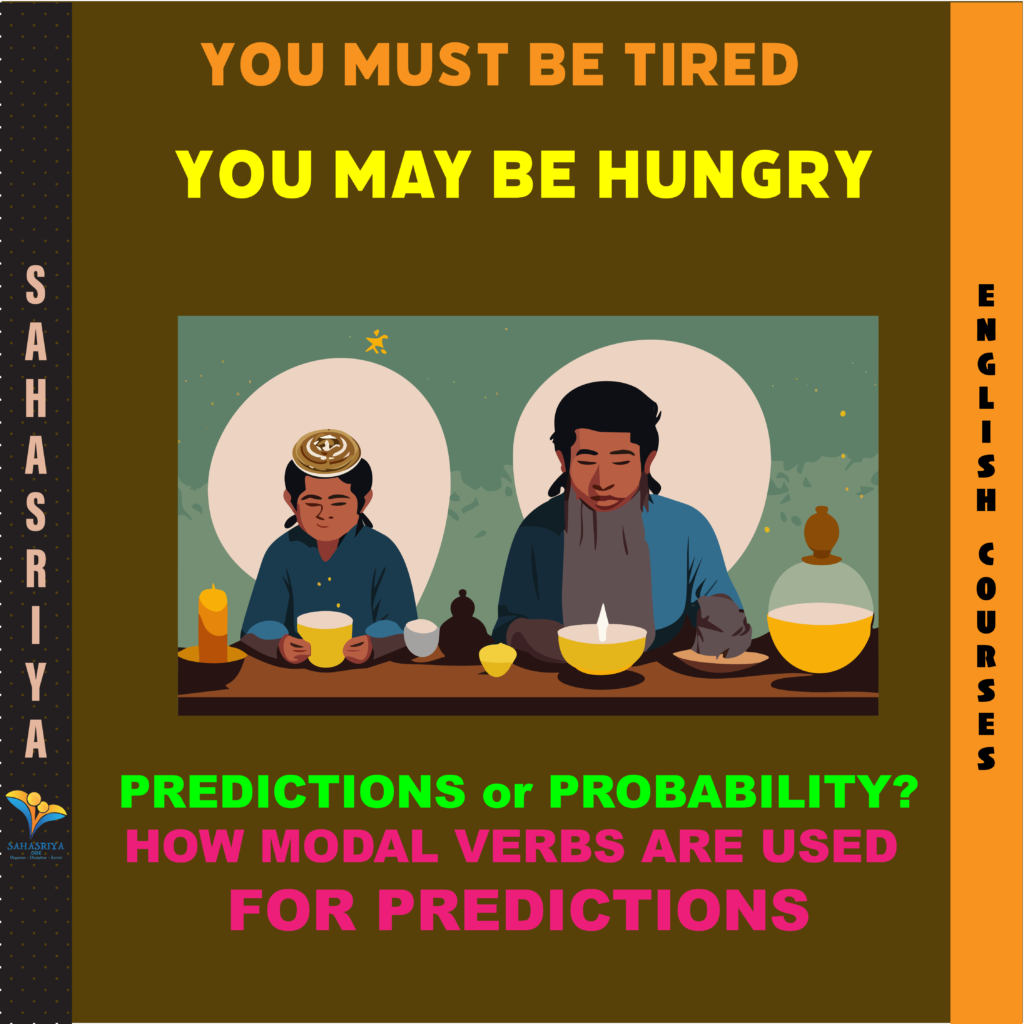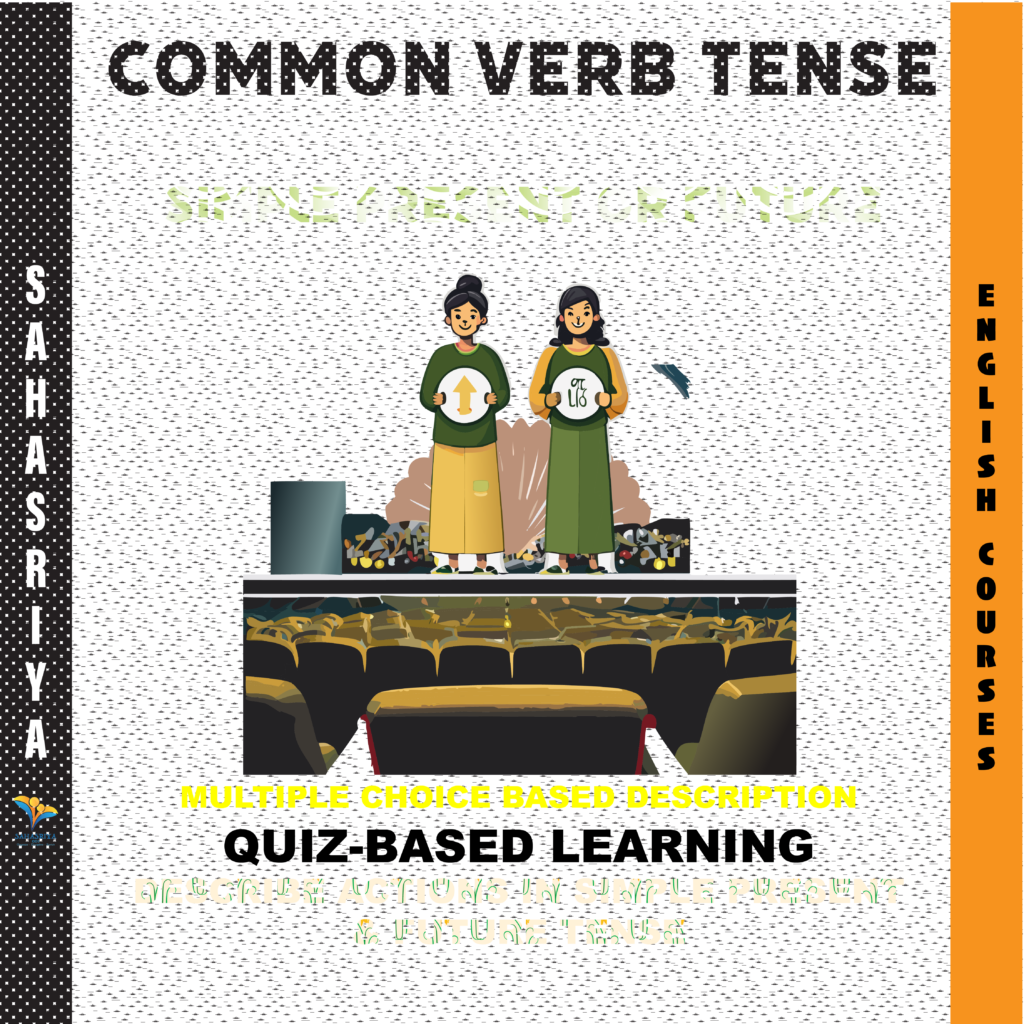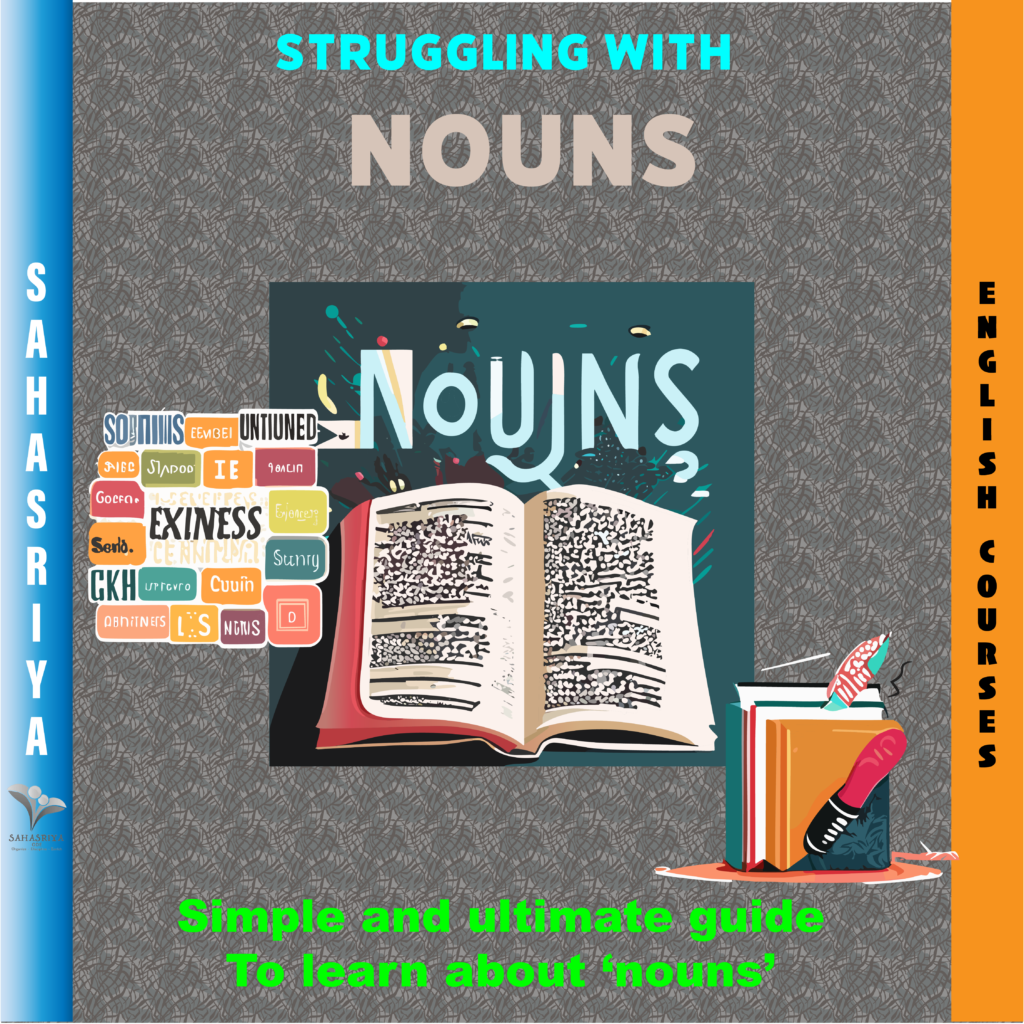
"You must be tired" - How modal verbs are used for predictions
Modal Verbs for prediction is a podcast and blog to help understand the usage of these verbs and how they. are used to express ‘prediction’. This podcast doesn’t focus on basic nature and usage of Modal verbs, but focuses on using Modal verbs for prediction.
Welcome to Learn English with Fun with Sahasriya. Twice every week, we focus on English grammar, vocabulary or pronunciation, and this week we’re focusing on an important part of grammar called modal verbs. In this episode we have detailed how modal verbs are used for prediction
But we’re NOT going to learn when to use can or could or how “should” means the same thing as “supposed to”. No, we’re going to learn how to make predictions using modal verbs and also how to express obligations. Let’s start off with an example to help you understand what I mean.
Imagine you are looking at your friend and she is pale and tired – she looks sick, so you say:
“You must be sick”.
We use “must” here to predict; we’re predicting that the reason why she is pale and sweaty is because she is sick.
Now, let’s compare the use of ‘must’ here with this sentence. In this sentence, you are not predicting but you are telling someone what to do.
“You must see the doctor”.
This time, we’re not predicting. Instead, we’re using a modal verb – ‘must’ – this time to tell someone to do something.
Now sometimes it can be really tricky to understand which use of the modal verb is intended. When you hear a ‘must’ or a ‘should’ or a ‘could’ – is it predicting or telling what to do? That’s what we are going to look more closely at in this podcast.
Okay, back to the confusing nature of modal verbs and those two meanings. I want to give you some more examples so you understand how these special words are used to predict or tell someone what to do.
Let’s do an example with ‘should’.
Listen to these two sentences:
They should visit their parents.
They should be at their parents’ house.
Whoa… okay, one more time:
They should visit their parents.
They should be at their parents’ house.
Hmmm okay, interesting. The word ‘should’ here has two very different meanings. In the first sentence: “She should visit her parents” we’re telling someone what to do – or we’re expressing a social “obligation”. You should do this, you should do that. You shouldn’t do this, you shouldn’t do that. That’s pretty clear, I think. But what about that second sentence?
She should be at her parents’ house.
This time we’re not expressing obligation – we’re not telling someone what to do, instead, this time we’re predicting.
Someone asks: Where’s Ram? Someone guesses: He should be at her parents’ house. This is the use of ‘should’ as a prediction.
Let’s do another one now with the modal verb ‘might’. Remember that each modal has a kind of ‘degree’ of strength, and ‘might’ is a weak one. That’s why it’s used when being polite.
Alright, ready? Listen to each sentence and tell me if the sentence is expressing ‘obligation’; that is, it’s telling someone what to do, or whether the sentence is making a prediction, a guess, or showing probability.
Sentence 1. Shyam might be in the bathroom.
Sentence 2. Shyam might want to give her a call.
Again:
Sentence 1. Shyam might be in the bathroom.
Sentence 2. Shyam might want to give her a call.
Okay, so Sentence 1. Shyam might be in the bathroom. is predicting or guessing ‘where’ Shyam is – he MIGHT be in the bathroom, he should be in the bathroom, he must be in the bathroom, he will be in the bathroom.
And Sentence 2. Shyam might want to give her a call. is expressing obligation – it’s kind of like a polite suggestion, where Shyam SHOULD give her a call or Shyam MUST give her a call are much stronger.
Alright, one more. This time we’re going to predict of guess using the modal verb ‘could’. Ready?
Tom could become CEO.
Here, we’re predicting. It’s not a very strong prediction – I mean, it’s not Tom WILL become CEO, but it’s still a prediction.
Now let’s use the same modal verb – COULD – to make a suggestion:
Tom could take Jacob’s car to the party.
Now, sometimes when you’re using a modal verb it’s actually impossible to say whether the sentence is a prediction or an obligation. And that’s because it all depends on context. It depends on who is saying it to whom as well as when and where they’re saying it. It’s only from these other clues that you can understand which meaning of the modal verb is being used.
Tricky stuff! But important stuff.



